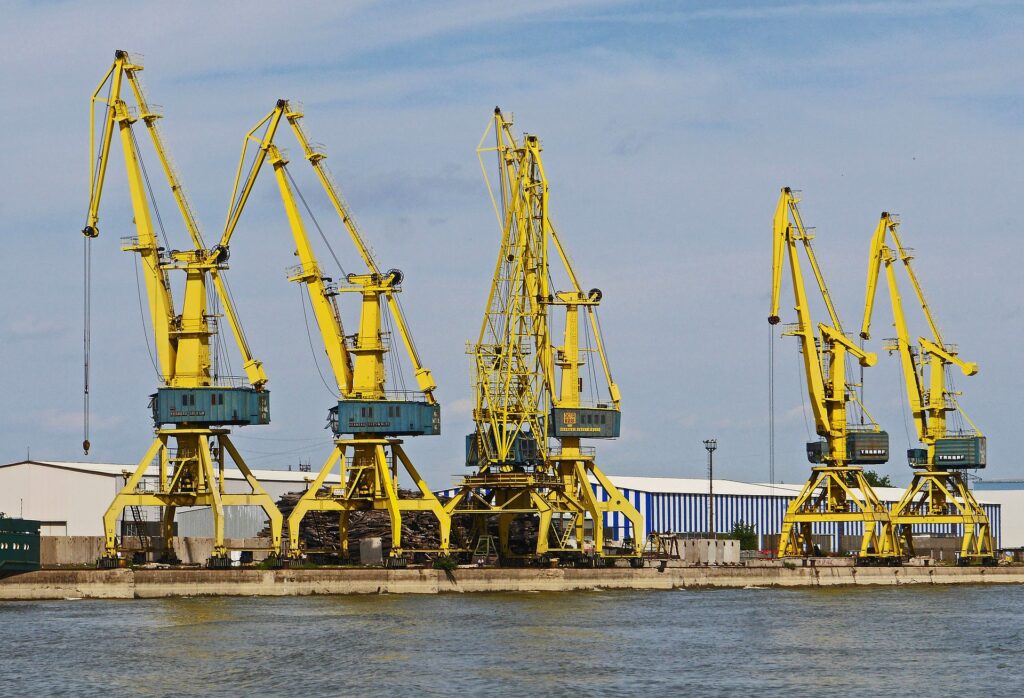The amount of State aid in a repayable advance to support research projects is the difference between the return a private investor would demand and the actual return for the funding authority. Introduction According to the staff working paper accompanying the 2018 annual competition report that was published on 15 July 2019, 95% of all State aid measures supporting R&D […]
State Aid Law
Blog
State Aid Uncovered Blog
In Lexxion’s State Aid Uncovered blog, Prof. Phedon Nicolaides publishes weekly critical analyses of recent State aid judgments and decisions. Each post presents the key points of a court judgment or EU Commission decision, places it in the context of similar case law or practice, assesses the underlying reasoning and highlights any inconsistencies or contradictions.
Guest contributions from other State aid experts will also be published on the blog at irregular intervals to complement the content of the blog posts.
State Aid Uncovered ×
20. August 2019 |
State Aid Uncovered
by Phedon Nicolaides
13. August 2019 |
State Aid Uncovered
by Phedon Nicolaides
An exclusive contract can affect cross-border trade if the awarding authority has the option to use a competitive selection procedure. Aid to the operator of a legal monopoly may affect trade if the operator can cross-subsidise activities outside the area of the monopoly. Introduction A perennial question is whether aid to providers of local services can affect cross-border trade. Given […]
6. August 2019 |
State Aid Uncovered
by Phedon Nicolaides
For investment aid to the operator of an airport to be considered as indirect aid to airlines, there must be an inseparable link between the aid and beneficiary airlines. For a competitor to claim that it is harmed by State aid, it must prove that its position in the relevant market is substantially affected. Ensuring that the costs of public […]
30. July 2019 |
State Aid Uncovered
by Phedon Nicolaides
Economies of scale do not necessarily correlate with ability to pay. Introduction On Thursday, 11 July 2019, France became the first European country to adopt a tax on digital sales. At about the same time, President Donald Trump warned that the US would retaliate with punitive tariffs. The US believes that the tax is aimed at its internet giants such […]
23. July 2019 |
State Aid Uncovered
by Phedon Nicolaides
Competitors of aid recipients may challenge a Commission decision only if State aid causes substantial harm to them. Assets must be sold to the highest bidder who makes a credible offer. Introduction If a public authority sells a state asset at a price below its market rate it grants State aid to the buyer. The market price is the highest […]
16. July 2019 |
State Aid Uncovered
by Phedon Nicolaides
Aid granted before accession to the EU may not be assessed by the Commission. Introduction It is fairly safe to say that in the sixty years of case law on State aid, the Court of Justice has ruled that there are just four instances in which payment of public money to an undertaking does not constitute State aid on the […]
9. July 2019 |
State Aid Uncovered
by Phedon Nicolaides
This week’s article deals with two issues: possible defence against repayment of incompatible State aid and the forthcoming revision of the GBER. Introduction In 2008, the Commission ordered France to recover incompatible aid that had been granted by means of several public measures to support farmers [see Commission decision 2009/402]. What made that decision interesting was that part of the […]
2. July 2019 |
State Aid Uncovered
by Phedon Nicolaides
A public authority that acts as a private operator may charge what the market can bear. Introduction In January 2019, Germany notified to the Commission, for reasons of legal certainty, investment of the municipality of Hamburg in a district heating network. The Commission, in decision SA.52390, found that the investment in Hamburg District Heating Network conformed with the Market Economy […]
25. June 2019 |
State Aid Uncovered
by Phedon Nicolaides
A private investor assesses all components of a complex transaction and takes into account not just profit, but also the legal implications of the prospective transaction and possible future liability. Introduction When a public authority sells land, it should either auction it through a competitive and unconditional process or have it valued beforehand by an independent expert.Sometimes, public […]
18. June 2019 |
State Aid Uncovered
by Phedon Nicolaides
Progressive tax rates that are consistent with the objective of the tax system are not necessarily selective. Introduction Member States are free to design their corporate tax systems as long as they do not grant State aid or infringe fundamental internal market freedoms. A question that arises in discussions on what Member States may or may not do when designing […]
State Aid Uncovered ×
20. August 2019 |
State Aid Uncovered
by Phedon Nicolaides
The amount of State aid in a repayable advance to support research projects is the difference between the return a private investor would demand and the actual return for the funding authority. Introduction According to the staff working paper accompanying the 2018 annual competition report that was published on 15 July 2019, 95% of all State aid measures supporting R&D […]
13. August 2019 |
State Aid Uncovered
by Phedon Nicolaides
An exclusive contract can affect cross-border trade if the awarding authority has the option to use a competitive selection procedure. Aid to the operator of a legal monopoly may affect trade if the operator can cross-subsidise activities outside the area of the monopoly. Introduction A perennial question is whether aid to providers of local services can affect cross-border trade. Given […]
6. August 2019 |
State Aid Uncovered
by Phedon Nicolaides
For investment aid to the operator of an airport to be considered as indirect aid to airlines, there must be an inseparable link between the aid and beneficiary airlines. For a competitor to claim that it is harmed by State aid, it must prove that its position in the relevant market is substantially affected. Ensuring that the costs of public […]
30. July 2019 |
State Aid Uncovered
by Phedon Nicolaides
Economies of scale do not necessarily correlate with ability to pay. Introduction On Thursday, 11 July 2019, France became the first European country to adopt a tax on digital sales. At about the same time, President Donald Trump warned that the US would retaliate with punitive tariffs. The US believes that the tax is aimed at its internet giants such […]
23. July 2019 |
State Aid Uncovered
by Phedon Nicolaides
Competitors of aid recipients may challenge a Commission decision only if State aid causes substantial harm to them. Assets must be sold to the highest bidder who makes a credible offer. Introduction If a public authority sells a state asset at a price below its market rate it grants State aid to the buyer. The market price is the highest […]
16. July 2019 |
State Aid Uncovered
by Phedon Nicolaides
Aid granted before accession to the EU may not be assessed by the Commission. Introduction It is fairly safe to say that in the sixty years of case law on State aid, the Court of Justice has ruled that there are just four instances in which payment of public money to an undertaking does not constitute State aid on the […]
9. July 2019 |
State Aid Uncovered
by Phedon Nicolaides
This week’s article deals with two issues: possible defence against repayment of incompatible State aid and the forthcoming revision of the GBER. Introduction In 2008, the Commission ordered France to recover incompatible aid that had been granted by means of several public measures to support farmers [see Commission decision 2009/402]. What made that decision interesting was that part of the […]
2. July 2019 |
State Aid Uncovered
by Phedon Nicolaides
A public authority that acts as a private operator may charge what the market can bear. Introduction In January 2019, Germany notified to the Commission, for reasons of legal certainty, investment of the municipality of Hamburg in a district heating network. The Commission, in decision SA.52390, found that the investment in Hamburg District Heating Network conformed with the Market Economy […]
25. June 2019 |
State Aid Uncovered
by Phedon Nicolaides
A private investor assesses all components of a complex transaction and takes into account not just profit, but also the legal implications of the prospective transaction and possible future liability. Introduction When a public authority sells land, it should either auction it through a competitive and unconditional process or have it valued beforehand by an independent expert.Sometimes, public […]
18. June 2019 |
State Aid Uncovered
by Phedon Nicolaides
Progressive tax rates that are consistent with the objective of the tax system are not necessarily selective. Introduction Member States are free to design their corporate tax systems as long as they do not grant State aid or infringe fundamental internal market freedoms. A question that arises in discussions on what Member States may or may not do when designing […]
State Aid Uncovered ×
20. August 2019 |
State Aid Uncovered
by Phedon Nicolaides
The amount of State aid in a repayable advance to support research projects is the difference between the return a private investor would demand and the actual return for the funding authority. Introduction According to the staff working paper accompanying the 2018 annual competition report that was published on 15 July 2019, 95% of all State aid measures supporting R&D […]
13. August 2019 |
State Aid Uncovered
by Phedon Nicolaides
An exclusive contract can affect cross-border trade if the awarding authority has the option to use a competitive selection procedure. Aid to the operator of a legal monopoly may affect trade if the operator can cross-subsidise activities outside the area of the monopoly. Introduction A perennial question is whether aid to providers of local services can affect cross-border trade. Given […]
6. August 2019 |
State Aid Uncovered
by Phedon Nicolaides
For investment aid to the operator of an airport to be considered as indirect aid to airlines, there must be an inseparable link between the aid and beneficiary airlines. For a competitor to claim that it is harmed by State aid, it must prove that its position in the relevant market is substantially affected. Ensuring that the costs of public […]
30. July 2019 |
State Aid Uncovered
by Phedon Nicolaides
Economies of scale do not necessarily correlate with ability to pay. Introduction On Thursday, 11 July 2019, France became the first European country to adopt a tax on digital sales. At about the same time, President Donald Trump warned that the US would retaliate with punitive tariffs. The US believes that the tax is aimed at its internet giants such […]
23. July 2019 |
State Aid Uncovered
by Phedon Nicolaides
Competitors of aid recipients may challenge a Commission decision only if State aid causes substantial harm to them. Assets must be sold to the highest bidder who makes a credible offer. Introduction If a public authority sells a state asset at a price below its market rate it grants State aid to the buyer. The market price is the highest […]
16. July 2019 |
State Aid Uncovered
by Phedon Nicolaides
Aid granted before accession to the EU may not be assessed by the Commission. Introduction It is fairly safe to say that in the sixty years of case law on State aid, the Court of Justice has ruled that there are just four instances in which payment of public money to an undertaking does not constitute State aid on the […]
9. July 2019 |
State Aid Uncovered
by Phedon Nicolaides
This week’s article deals with two issues: possible defence against repayment of incompatible State aid and the forthcoming revision of the GBER. Introduction In 2008, the Commission ordered France to recover incompatible aid that had been granted by means of several public measures to support farmers [see Commission decision 2009/402]. What made that decision interesting was that part of the […]
2. July 2019 |
State Aid Uncovered
by Phedon Nicolaides
A public authority that acts as a private operator may charge what the market can bear. Introduction In January 2019, Germany notified to the Commission, for reasons of legal certainty, investment of the municipality of Hamburg in a district heating network. The Commission, in decision SA.52390, found that the investment in Hamburg District Heating Network conformed with the Market Economy […]
25. June 2019 |
State Aid Uncovered
by Phedon Nicolaides
A private investor assesses all components of a complex transaction and takes into account not just profit, but also the legal implications of the prospective transaction and possible future liability. Introduction When a public authority sells land, it should either auction it through a competitive and unconditional process or have it valued beforehand by an independent expert.Sometimes, public […]
18. June 2019 |
State Aid Uncovered
by Phedon Nicolaides
Progressive tax rates that are consistent with the objective of the tax system are not necessarily selective. Introduction Member States are free to design their corporate tax systems as long as they do not grant State aid or infringe fundamental internal market freedoms. A question that arises in discussions on what Member States may or may not do when designing […]













